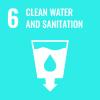Wau town, 28 Feb 2022 – The silence outside is interrupted by a bell, signalling break time for students at St Michael's Primary School in Lokoloko village, on the outskirts of Wau town, the capital of South Sudan’s Western Bahr el Ghazal state.
In no time, hundreds of them bolt from their classrooms to make the most of a 20-minute break to play hopscotch, tag, or to buy treats from a group of women in the schoolyard.
Empty bottles of different sizes in hand, many dash to the water point located on the school grounds to fill up their bottles.
Towering over the school, three tanks that can each hold 5,000 litres serve two more water points, providing clean and safe drinking water to returnees and host communities living in Lokoloko, including persons with disabilities, in addition to the school children.
“It is great to have the water here,” says Samson Louis Andrea, a 13-year-old student at St Michael’s. “I use it to wash my hands after I come back from the latrine and also to drink; all the children here are using it.”

The water tower serves two water yards in Lokoloko, Wau. Photo: IOM 2021/Aleon Visuals
Before the construction of the water yard by the International Organization for Migration’s (IOM) Water, Sanitation and Hygiene unit, one hand pump borehole serviced the school of more than 1,300 students. Residents of Lokoloko community depended on water hauled around the town by a donkey carriage, usually expensive. For many who could not afford this service, they would walk to neighbouring communities to pump water from boreholes or rely on ponds with stagnant water, running the risk of contracting waterborne diseases.
“In the past we suffered a lot because there was only one borehole for more than 1,300 students,” says Manahil Tutu Bushara, the school’s headmaster. “Students would have to line up for a long time to get water to drink or to wash their hands and would even have to go back to class before they got a chance to drink. The little ones suffered the most because the pump was too heavy for them.”
A nine-member committee manages the day-to-day running of the two water points outside the school, and ensures they are well maintained. Members of the Committee include participants of the Engaging Men through Accountable Practices programme aimed at ending gender-based violence and contributing to improved public health dialogue.
The construction of the water yard, fully powered by 10 solar panels, started in October 2020, was completed in January last year and officially handed over to the community in February. It serves an estimated 2,850 people.
“When there is no water, the basics of life come to a stop,” says 19-year-old Mariam Said Ibraham, from a community women’s group. “We cannot cook. We cannot wash,” she says. “These water points are improving the quality of life at home and for our children at school,” says Mariam.

Mariam Said Ibraham, 19 years old, a representative of the Women’s group. Photo: IOM 2021/Aleon Visuals
The clean and safe drinking water is promoting good hygiene and helping curb the spread of COVID-19 with regular soap and handwashing.
Twelve-year-old Joice Momkin Samuel, Samson’s classmate, says the teachers always remind them to regularly wash their hands and to keep hydrated.
“We have water to drink and to wash our hands. I hope that every school in South Sudan can have water like we do here at our school; it is important,” says Joice.
This project is funded by the United States Agency for International Development (USAID) through the Water, Sanitation and Hygiene (WASH) Response and Prevention of Gender-Based Violence (GBV) Program.
This story was written by Liatile Putsoa, Email: lputsoa@iom.int



